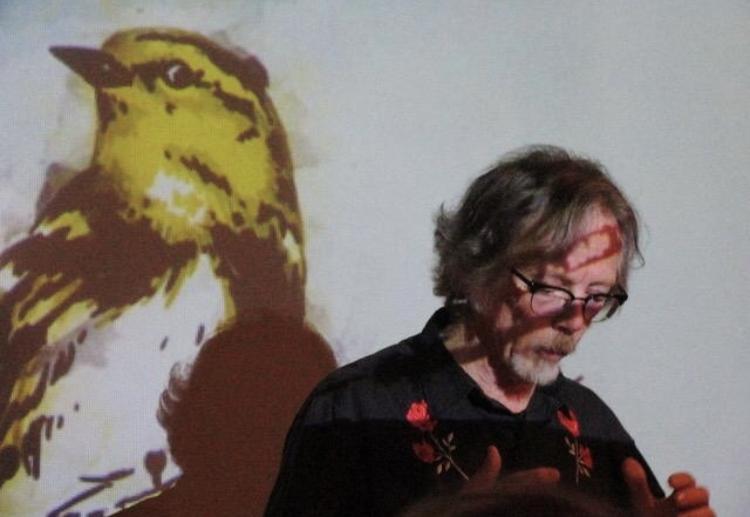Phil Hall is the University of New Brunswick’s writer-in-residence for the 2018-19 academic year. Having discovered his love of writing as a child, Hall began writing poems specifically because they were small and “easy to hide.” Being a poet, he explained, does not have to be as conspicuous as being, say, a cellist. There is a certain delicate mystery surrounding the smallness, the portability and the concealability of poems.
What does a writer-in-residence do? Well, they write, and they discuss writing. “I used to teach at community colleges,” Hall said. “In their departments, they had programs where if you were in business or computer science or something… they would bring in people who work in the field, to come in and do workshops. That’s basically what a writer-in-residence is.” Though an acclaimed poet, Hall qualified this explanation by saying, “I’m not a professor. I just live by the lake, near Ottawa.” With that simple phrase, it became obvious why the University of New Brunswick’s English Department took him on for the 2018-19 year – he cannot keep poetry out of his mouth.
As writer-in-residence, Hall relates to people who are “real writers.” When students visit to ask him questions or review material, Hall relates closely to those with a fervour for language. “That’s my family,” he said. “I have been a young, awful, arrogant, stupid, ambitious, silly writer, and so I relate to all of that.”
Hall’s advice to budding writers and poets is twofold: be disciplined and unafraid of failure. “You shouldn’t rely on inspiration. It’ll let [you] down,” Hall said. “Try to develop some routine or rhythmical practice. The body, and the imagination, respond to rhythm.” Finding a routine of doing something relaxing and then following it up by writing, or even simply documenting the day in a diary helps to build discipline as a writer, he explained. “That’s what you need to develop: a respectful practice for your own thinking, the collecting of that, and the tinkering with language.”
As for being unafraid of failure, Hall discussed some of his own work and his relationship to failure. Hall’s book Killdeer is an award-winning collection of long essay poems. “Killdeer talks about how I became a writer and all the stupid things I did, like hitchhiking to meet Margaret Lawrence and knocking on her door,” he said, suppressing a laugh.
Writing, especially the writing of poetry, has long been compared to a deep, silent wilderness. “Writing is a solitary endeavour, where you have to go off by yourself, like reading,” Hall said. Poetry is slowly cultivated during these lone retreats, though sometimes it needs a fresh set of eyes out of the woods to truly bring it to life. Hall recalled agonizing over his books and poems before submitting them, revising and re-revising, until finally he dropped them in the mailbox. “And then, as I walked home, I’d know so clearly what was wrong with the poems, that I’d go home and I’d change them all… So the advice is: finish things, send them out,” Hall said. Sharing one’s poetry and writing with others is a valuable way to improve and collaborate.
Hall has an exhibition of his collage art on display on the first floor of the Harriet Irving Library that ends on Feb. 1. This exhibition, a series of self-portraits entitled “Cut and Past,” combines torn up pages from books with sketches and ephemera from Hall’s life. He will also be doing a reading on Jan. 29 at 12 p.m. in the Beaverbrook Room, along with a discussion on the relationship between collage and poetry.




